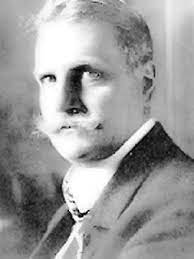Michels, Robert

Bio: (1876-1936) German-Italian sociologist and political scientist. Robert Michels earned his Ph.D. from the University of Halle. He has taught at the universities of Marburg, Turin, Basel, and Perugia. He was a member of the social democratic parties in Germany and Italy, and due to his membership in the Social Democratic Party of Germany, he was banned from lecturing at German universities. He advocated trade unionism as the best way to achieve socialist goals, and one of his first books, Unionism and Socialism in Germany (1908), dealt with this very issue. He left both Social Democratic parties (in Italy and Germany) in 1907, and in 1924 he became a member of the Fascist Party of Benito Mussolini.
His personal experience in politics and party life, which was mostly negative for Michels, was reflected in the book Political Parties: A Sociological Study of the Oligarchical Tendencies of Modern Democracy (1915, in German 1911). This book, whose second, revised, edition was published in 1925, is Michels' most important contribution to political sociology and political science. In this book, Michels presents the famous "iron law of oligarchy", the view that all political parties are controlled by a small number of people who are at their top. Michels believes that political parties have a dual nature and purpose. Parties are spontaneous associations that combine propaganda and agitation in order to gain political power. On the other hand, parties provide individuals with values and material basis to achieve their own goals, which can be ideological or purely personal - economic, status, or political well-being of the individual.
Michels singles out five basic types of parties. The first type are patronage parties - they are led by a charismatic leader (these parties are often named after the leader). The characteristics of a leader are: strength of will, broad knowledge, great ambition, self-sufficiency, the reputation of selflessness, and intoxicating oratory. Michels singles out Mussolini as the best example, who, in his opinion, not only represents the embodiment of the Fascist Party, but also the whole of Italy. Charismatic parties are most often formed when the leader establishes them, while much less often is a case that a charismatic leader wins power within the party that was not previously a charismatic party. The second type of parties are those that represent a means of realizing the interests of certain classes. Ideological parties are the third type of party. The fourth type of parties are parties that are organized around religious identity (Catholic and Protestant parties). The fifth type of parties are those that represent the interests of a specific nation or ethnicity. Ideological parties have the most developed and broadest political program, while other parties have programs that focus on specific issues, and have only vague positions on other issues.
All five types of parties function very similarly, regardless of the manner and causes of their formation. The similarity in functioning arises due to several factors: the necessity to regulate the functioning of the organization; the nature of the individual human psyche, and the nature of the mentality of the crowd. Since serious politics requires great knowledge and skills, professional politicians emerge and take over every political party. On the other hand, the masses who do not have that knowledge and technical skills are not able to control the party leaders. In addition, ordinary party members, as well as sympathizers, have the mentality of the crowd and naturally follow their leaders. All these factors lead to the party striving for an oligarchic system, and that, according to Michels, is the iron law of history. However, the power of the oligarchy isn’t limitless, since, in democracies, the success of the party directly depends on the number of voters, so party oligarchy must encourage and preserve the sympathies of the masses, which enables the masses to have a reciprocal influence on the oligarchic elite.
Fields of research
Conservative Ideology Culture Democracy Demography Elites Ideology Knowledge Leaders Morality Parties, Political Personality Politics Power, Political Propaganda Psychology Socialism Voting FascismTheoretical approaches
Conservatism, SocialMain works
Syndicalisme & socialisme en Allemagne (1908);
Zur Soziologie des Parteiwesens in der modernen Demokratie (1911);
Probleme der Sozialphilosophie (1914);
Imperialismo italiano, studi politico-demografici (1914);
Amour et chasteté: essais sociologiques (1914);
Sozialismus und Faschismus in Italien (1925);
Corso di sociologia politica (1927);
Sittlichkeit in Ziffern? Kritik der Moralstatistik (1928);
Patriotismus, Prolegomena zu seiner soziologischen Analyse (1929);
Einfluss der faschistischen Arbeitsverfassung auf die Weltwirtschaft (1929);
Italien von heut: Politische und wirtschaftliche Kulturgeschichte von 1860 bis 1930 (1930).
Works translated into English:
Political Parties: A Sociological Study of the Oligarchial Tendencies of Modern Democracy (2016, in Italian 1911);
First Lectures in Political Sociology (1949, in Italian 1927).

